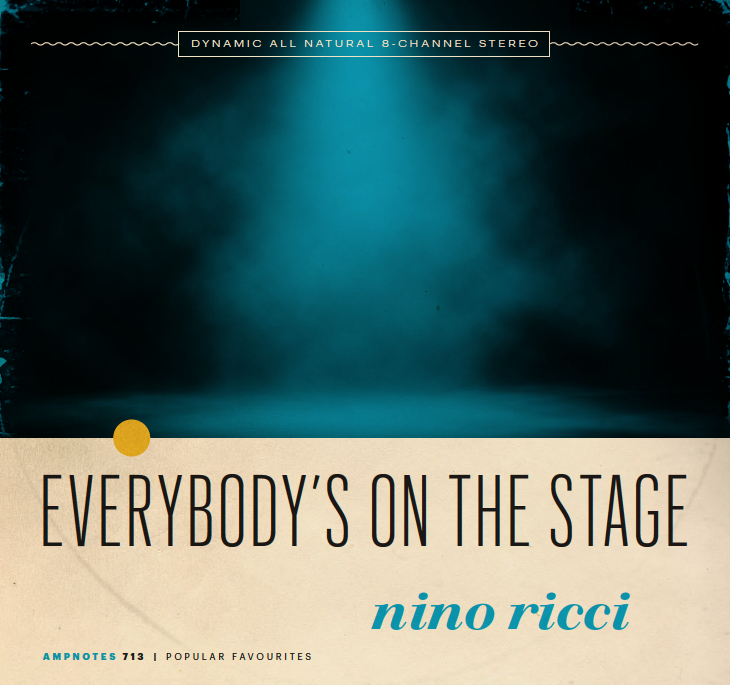Growing up I had a conflictual relationship with music. Conflictual because I had to play third or fourth fiddle to the musical tastes of my older siblings, who had already claimed for themselves such coveted territory as Led Zeppelin and Dark Side of the Moon before I’d had a chance to develop tastes of my own. Conflictual because even among my peers I was always hopelessly belated, with friends who were die-hard fans of Iggy Pop and David Bowie before I’d even heard of them.
Conflictual because in my early teens I’d become addicted to cheesy Italian pop tunes like “Mamma” and “La Prima Cosa Bella” that branded me as hopelessly square, lip-syncing to the latter at a high school talent show wearing a rhinestone-studded Gino shirt in my one, failed attempt at musical glory.
Not that I didn’t have my musical moments.
Necking for the first time in my brother’s Pontiac while Bread’s “If” played on the 8-track. Finding the strength to carry on during the darkest days of teenage despond after stumbling on Jethro Tull’s “Skating Away (on the Thin Ice of the New Day).” It wasn’t that music didn’t move me; if anything, it moved me too much, arousing emotions that often felt just this side of the bearable, every unnameable fear and hope and longing somehow bound up in them. Yet like Jethro Tull’s skater, I never quite managed to shake the sense that I was the perpetual outsider, sitting alone in the dark in the bleachers while everyone else was jamming on the stage.
All of my musical insecurities rose to the surface again when I became friends with fellow novelist Paul Quarrington. Paul had actually cut his artistic chops not as a writer but as a musician, penning his first books to kill time on the road touring as a bass player for Joe Hall. Despite having racked up an impressive heap of writing awards since then, he had continued to think of himself less as a writer than as a musician who happened to write, always keeping a guitar close at hand and occasionally taking to the road with his blues/roots ensemble Porkbelly Futures. The monthly poker games Paul held at his house were like courses in musical history: Django Reinhardt might make
an appearance, and Woody Guthrie, with the night usually closing out with the unsung hero behind such Quarrington favourites as “Galveston,” “MacArthur Park,” Jimmy Webb.
I was ready at first to dismiss Paul’s musical incli- nations as just a holdover from adolescence. The more I got to know him, though, the more I saw how music indeed went to his core. He had a gift for bringing people together from across the bounds of
his creative selves, a skill that seemed to derive from the musician in him, from his sense of the creative act as an ensemble one. It was at musical events that Paul came into his own, all the inevitable armouring that has to happen in any roomful of writers, who spend far too much time working alone, giving way to an openness and generosity that seemed his truest self. At musical events you could spot some fellow musician in the audience and invite them on stage to share the limelight, something that never happened at literary events; you could pay tribute to someone you admired without the slightest bit of irony or subtext. If writing was where Paul earned his living and made his name, music was where he turned to recharge from all that earning and name-making.
It was to music that Paul turned when he was diagnosed with terminal lung cancer in 2009. Over the next eight months he completed a final tour with Porkbelly Futures; recorded two final albums, one solo and one with the band; and finished a memoir about his relationship to music. He recorded his
last song, “Are You Ready,” featuring his childhood friend Dan Hill on backup vocals, just ten days before his death. Less than two weeks before that he had attended my family’s annual New Year’s Eve bash, where he was a fixture, and where he had played some Jimmy Webb on his beat-up Gibson still looking as if he might live forever.
These days I’m usually still the musical misfit in the room. Thanks to Paul, though, at least I feel like I’m up on the stage now with everyone else, even if all I can do is hum along.
Nino Ricci is a Toronto-based writer who has published six novels and two works of non-fiction. His many accolades include two Governor General’s Awards and the Order of Canada.

